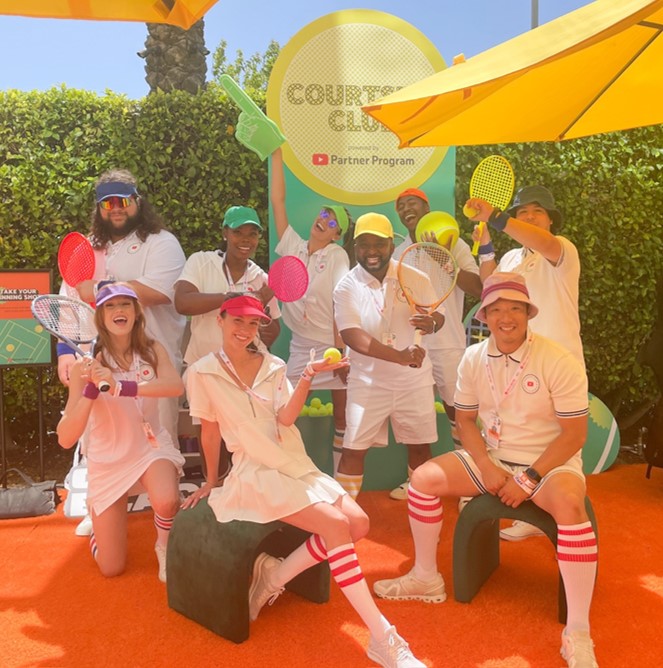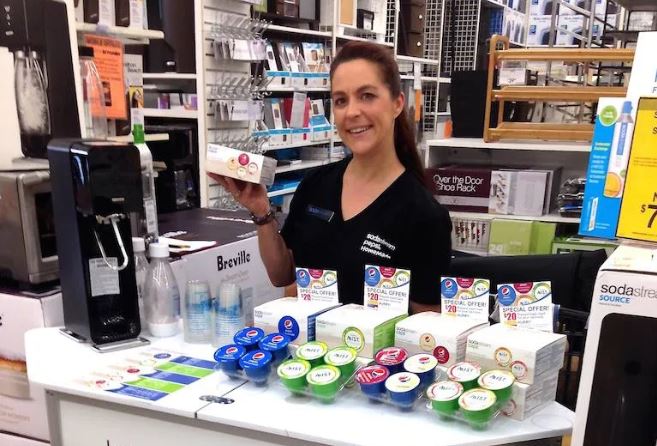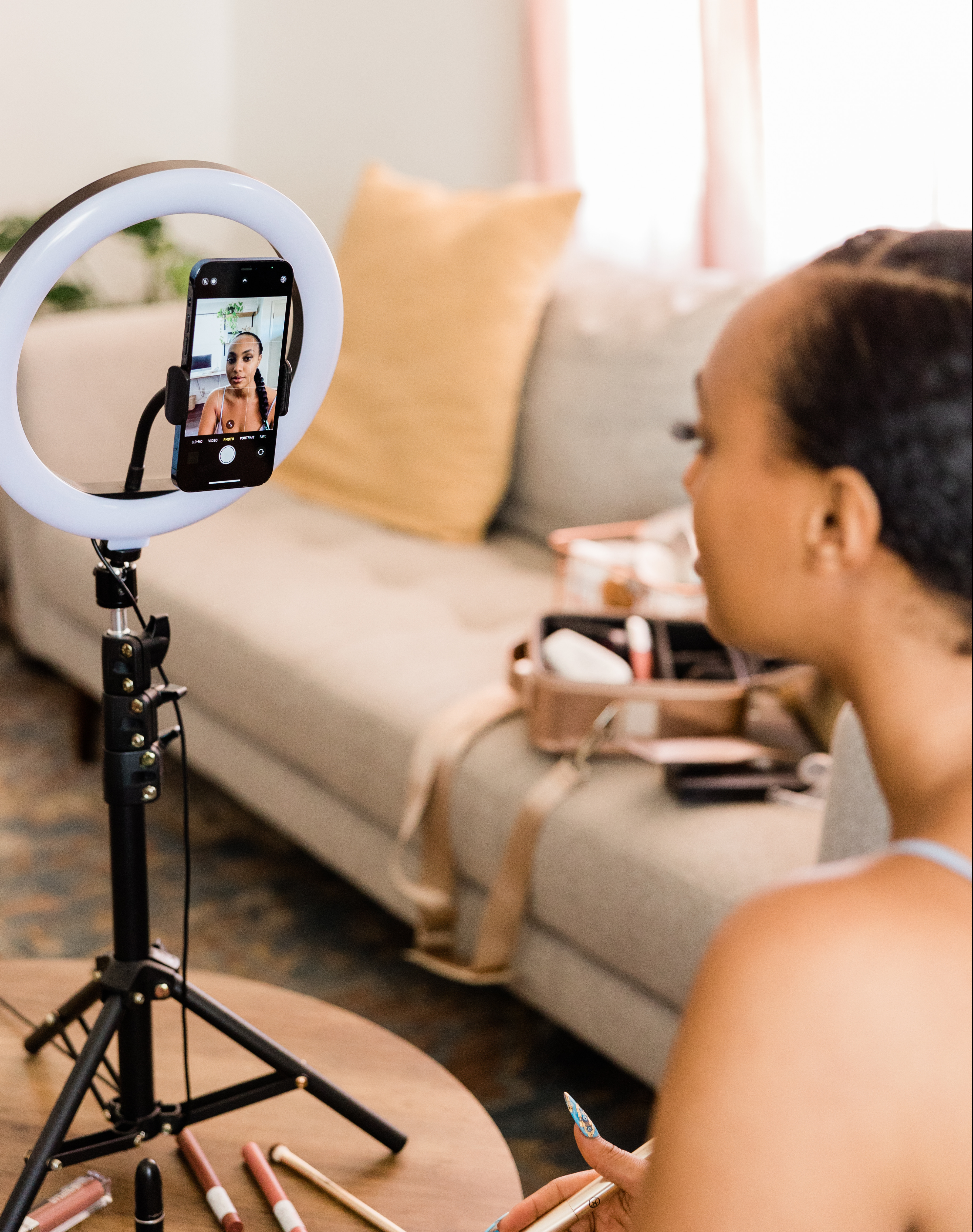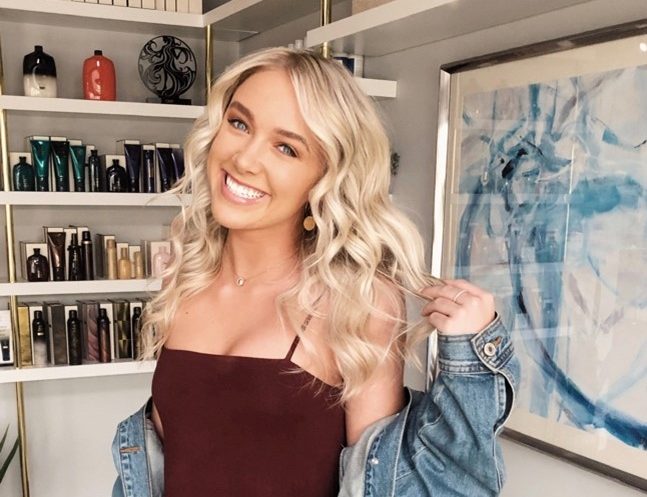8 Reasons Productions Plus Demonstrators Sell More
A demonstrator’s job is to increase brand awareness and sales.
Here are 8 tips we teach our talent to increase the sales and the success of their demos.
1. Look the Part
 You are the first impression that a retail customer has of the brand and product you are representing. Your appearance and the appearance of your demo station are a reflection of the brand and will set the tone for your demo. Your clothing should be clean and pressed. Hair and makeup should be done. You should be wearing the required wardrobe, and your station should be stocked and clean.
You are the first impression that a retail customer has of the brand and product you are representing. Your appearance and the appearance of your demo station are a reflection of the brand and will set the tone for your demo. Your clothing should be clean and pressed. Hair and makeup should be done. You should be wearing the required wardrobe, and your station should be stocked and clean.
2. Be Prepared
Reciting a script is not enough. Be prepared to help a customer make an informed decision. It is imperative that you know your product and brand history. Brand and product knowledge should be deeply ingrained so that it flows naturally. This frees you up to focus on the customers’ needs and how you can fulfill them.
3. Stand, Smile, and Stay off Your Phone
Standing during your demo shows you are ready and open to engaging with the customer. You should be physically able to stand for the entire 4-hour demo, aside from your allotted break. Smiling and looking someone in eye is a friendly, non-verbal, and non-threatening greeting. A smile can disarm a customer and draw them in. Sitting and not smiling during a demonstration implies disinterest and laziness. Stay off your phone. Being on your phone during a demo is unprofessional and unacceptable.
4. Approach the Customer
 The most successful demonstrators are those who don’t sit back and wait for customers to ask the first question. Approach customers with a smile and fun opening line. “Hi! Looks like you may be ready for a coffee break. Would you like to try some?” “Welcome! Is it still cold out? How about a hot cup tea to warm up?” “I see you’re looking at wine openers. My mom loves this one! Are you familiar with this product?” The more comfortable you are, the more receptive the customer will be. Role play some opening lines before your next demo.
The most successful demonstrators are those who don’t sit back and wait for customers to ask the first question. Approach customers with a smile and fun opening line. “Hi! Looks like you may be ready for a coffee break. Would you like to try some?” “Welcome! Is it still cold out? How about a hot cup tea to warm up?” “I see you’re looking at wine openers. My mom loves this one! Are you familiar with this product?” The more comfortable you are, the more receptive the customer will be. Role play some opening lines before your next demo.
5. Ask Questions
Turn the demonstration into a conversation, not a presentation. Assisted selling is not about the hard sale. It is about asking the right questions to help the customer understand their needs. This includes asking for the sale when the time is right. Take a more personalized approach to selling. Ask their name. Ask how often they open a new bottle a wine. Ask the color of their kitchen to see if our product line would match their decor, or if they use whole beans or ground, etc. The more you know about the person, the easier it is to show how the product fulfills their specific needs, without being pushy.
6. Actively Listen
If you ask questions, you must actively listen to their reply. Don’t cut customers off. Let them work through their thoughts as they decide if this is the right purchase for them. Listen for clues that may suggest a sale is imminent. A great technique is to listen to what a person says, and repeat it back to them. “So what I am hearing you say is that you really need a machine that fits under your counter, is that correct?” “You mentioned you love red wine, but your husband only likes white, and that one of you always has to compromise. How would you feel about not having to compromise anymore?” This approach helps customers feel heard, builds trust, and deepens the conversation.
7. Involve the Customer
 Having a customer take an active role in the demo will help them understand how the product works. People love to “try before they buy.” Let them push the buttons, or put the pod/capsule/teabag/fruit in the machine. If they want to know how heavy it is, guide them pick it up. If they want to know how something works, walk them through it. Remember, you learned the product by “doing”, not by watching. The more hands on the customer can be, the more they will understand the product, and the more they will feel personally involved in the demo.
Having a customer take an active role in the demo will help them understand how the product works. People love to “try before they buy.” Let them push the buttons, or put the pod/capsule/teabag/fruit in the machine. If they want to know how heavy it is, guide them pick it up. If they want to know how something works, walk them through it. Remember, you learned the product by “doing”, not by watching. The more hands on the customer can be, the more they will understand the product, and the more they will feel personally involved in the demo.
8. Know How to Handle Objections
Handling customer objections to buying a product can be easy if you know how to do so confidently. Keep a list of frequent objections and your responses. What did you do? What did you say? What did they do or say? Try to dig down to the root of their objection. You can say something like, “I am hearing you say this is too expensive right now. Another customer of mine didn’t want to lose out on having this machine because of price. So, she asked her entire family to chip in for her birthday. Is that something that’s an option for you?” “Based on our discussion, this is really the perfect wine opener for your wine habits. Is never having to compromise again on what bottle to open something you find worthy of saving up for?” The more you understand why they are not buying, the easier it is to give a clear and concise, yet personalized response. Have some responses prepared before your next demo and see if it makes you feel more confident.
Bottom Line:
Companies like Coravin, Philips, Nespresso, De’Longhi, illy, The Cookware Company and more have been putting their trust in Productions Plus demonstrators nationwide for years. They know our talent will be trained on the brand, the product, and on sales techniques, which will result in increased sales and a larger return on their investment.







